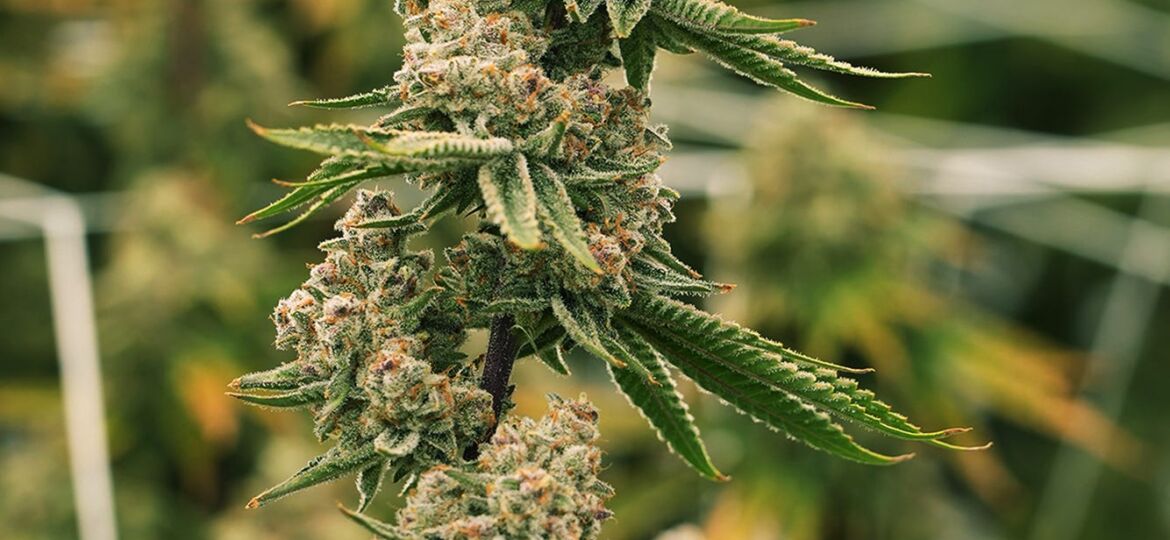
Almost half of states across the U.S. have moved to legalize recreational marijuana. Mississippi is still in limbo. It’s partially decriminalized here, but not fully legal.
While 24 states have adopted laws allowing adults to purchase and consume cannabis for non-medical use, Mississippi continues to prohibit it. But you can buy “intoxicating hemp” drinks laced with THC in stores.
But what does the Magnolia State allow medically? Here is everything to know.
Has Mississippi legalized recreational marijuana?
No, Mississippi does not allow adult use of cannabis. But having small amounts for personal use is no longer penalized.
So pot is partially decriminalized. But not legal.
According to NORML, a nonprofit that advocates for the legalization of use by adults, possessing 30 grams or less might lead to a fine of $100-$250. For a second offense, you could face a misdemeanor charge, spend five to 60 days in jail and face a fine up to $250.
Hash and concentrates have a harsher penalty. Having 0.1 grams or less could lead to a year in jail and up to a $1,000 fine.
Don’t toke and drive. While it’s generally good sense not to drive while buzzed or otherwise impaired, having marijuana in the cab of a vehicle is a misdemeanor, no matter how small the amount. Having less than 30 grams in a car outside the trunk could land you 90 days in jail or a $1,000 fine, per NORML.
It’s also a felony to have more than 30 grams of weed, and fines increase based on the amount of the substance or severity of the crime, per NORML.
Having paraphernalia, like pipes or rolling papers, is a misdemeanor that could get you six months in jail or a $500 fine.
What about THC drinks in Mississippi?
In the most recent legislative session, Mississippi lawmakers avoided passing a ban on hemp products. The state allows the sale of drinks with low levels of THC, the part of cannabis that gives a high or buzz. Intoxicating hemp products will stay on store shelves, and there’s no age restriction for who can buy the products.
Does Mississippi allow medical marijuana? How do I get it?
According to DISA Global Solutions, marijuana is only legal for medical purchase and consumption in Mississippi.
If you want to buy medical cannabis, you’ll need a medical prescription card. State-registered doctors can prescribe weed for more than 20 conditions, such as cancer, glaucoma or Parkinson’s Disease. Check the list maintained by the Mississippi Medical Cannabis Program to see if you qualify.
There are costs and fees associated with getting a card. It’s $25 usually and $15 for indigent patients, veterans and people on Medicaid. (It’s waived for disabled first responders and disabled veterans.) Caregivers, like for minors, also have to pay the $25 fee and $37 for a background check, according to the state cannabis program.
With a prescription card in hand, you can visit a dispensary. Insurance doesn’t cover it, so be prepared to pay out of pocket.
The state allows cardholders to get up to six Medical Cannabis Equivalency Units (MCEUs) a week.
One MMCEU is equivalent to:
- 3.5 grams of flower.
- 1 gram of THC concentrates such as oils and wax.
- 100 milligrams of THC in an infused product.
Can I grow my own marijuana in Mississippi?
Not legally. It’s a felony to sell or grow weed in Mississippi, according to NORML.
The state regulates the licensed facilities that cultivate cannabis for medical use or production.
Even people with medical marijuana cards can’t grow their own at home, the Mississippi Medical Cannabis Program said.
What states have legalized recreational marijuana?
According to U.S. News and World Report, here are the 24 states to legalize marijuana:
- Washington (as of 2012)
- Alaska (as of 2014)
- Oregon (as of 2014)
- California (as of 2016)
- Montana (as of 2020)
- Colorado (as of 2012)
- Nevada (as of 2016)
- Arizona (as of 2020)
- New Mexico (as of 2021)
- Minnesota (as of 2023)
- Missouri (as of 2022)
- Illinois (as of 2019)
- Michigan (as of 2018)
- Ohio (as of 2023)
- Virginia (as of 2021)
- Maryland (as of 2023)
- Maine (as of 2016)
- Delaware (as of 2023)
- New Jersey (as of 2020)
- New York (as of 2021)
- Vermont (as of 2018)
- Massachusetts (as of 2016)
- Rhode Island (as of 2022)
- Connecticut (as of 2021)
For more information, visit usnews.com/news.
Contributing: Grant McLaughlin
Vanessa Countryman is the Trending Topics Reporter for the the Deep South Connect Team Georgia. Email her at Vcountryman@gannett.com.
Bonnie Bolden is the Deep South Connect reporter for Mississippi with Gannett/USA Today. Email her at bbolden@gannett.com.

